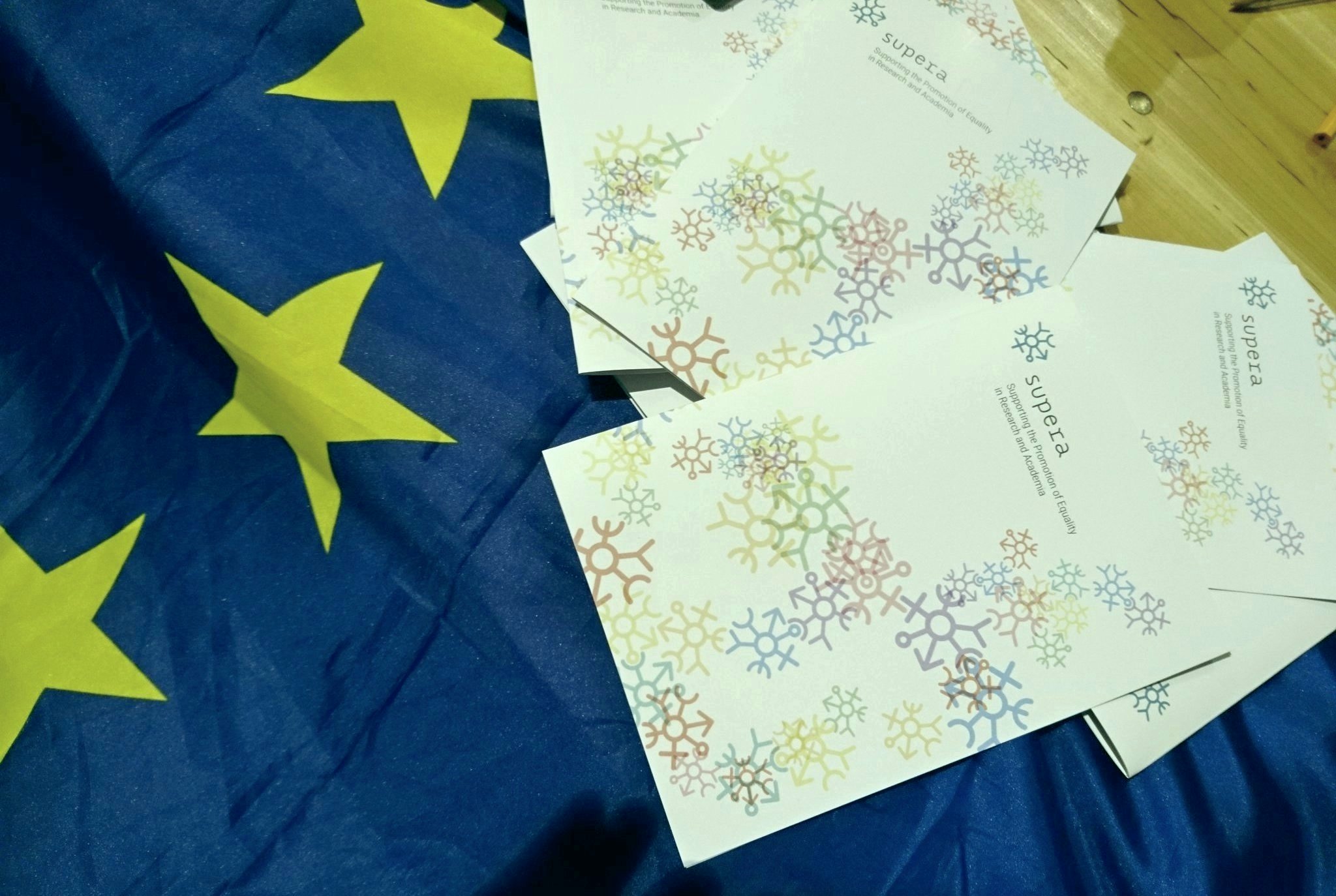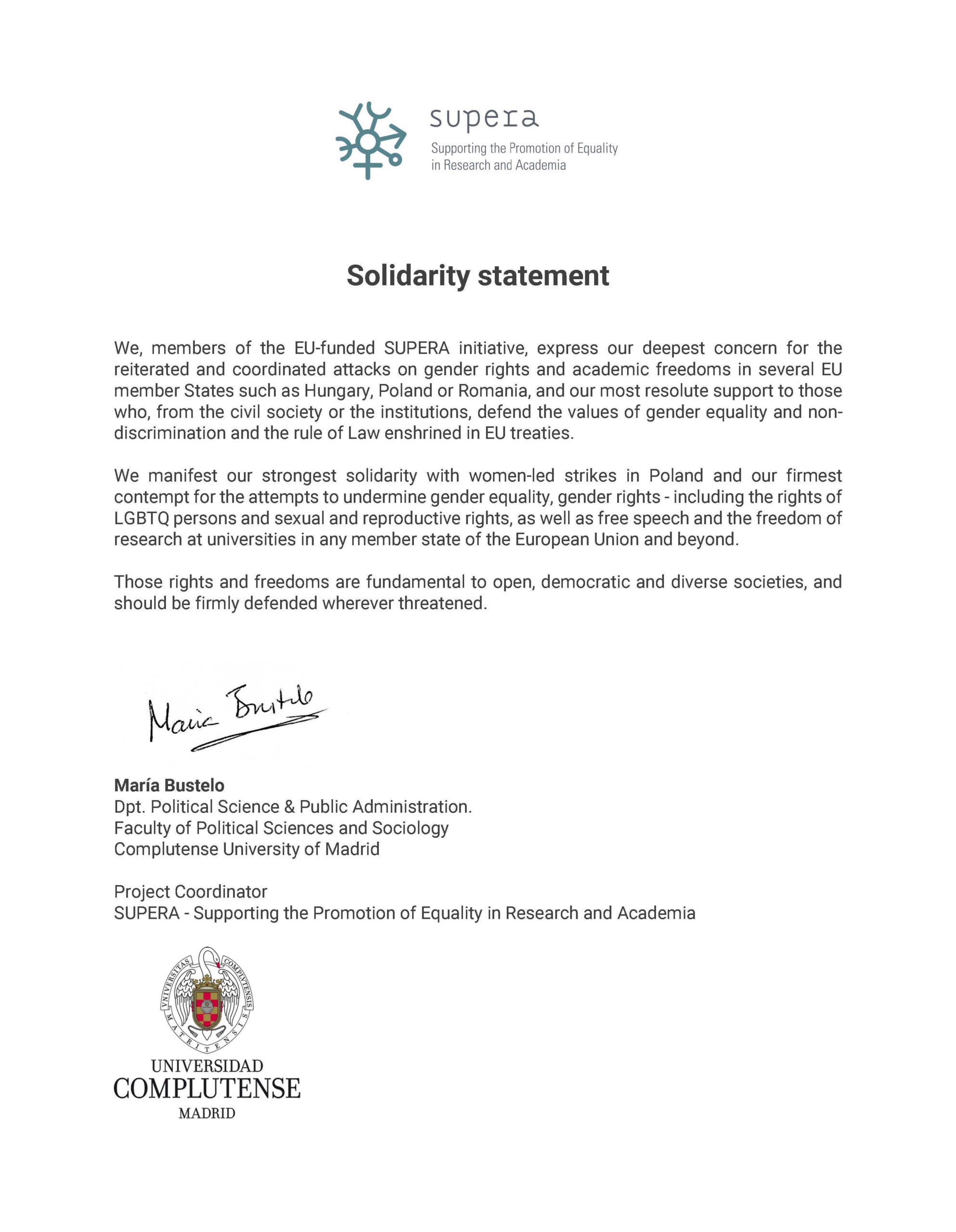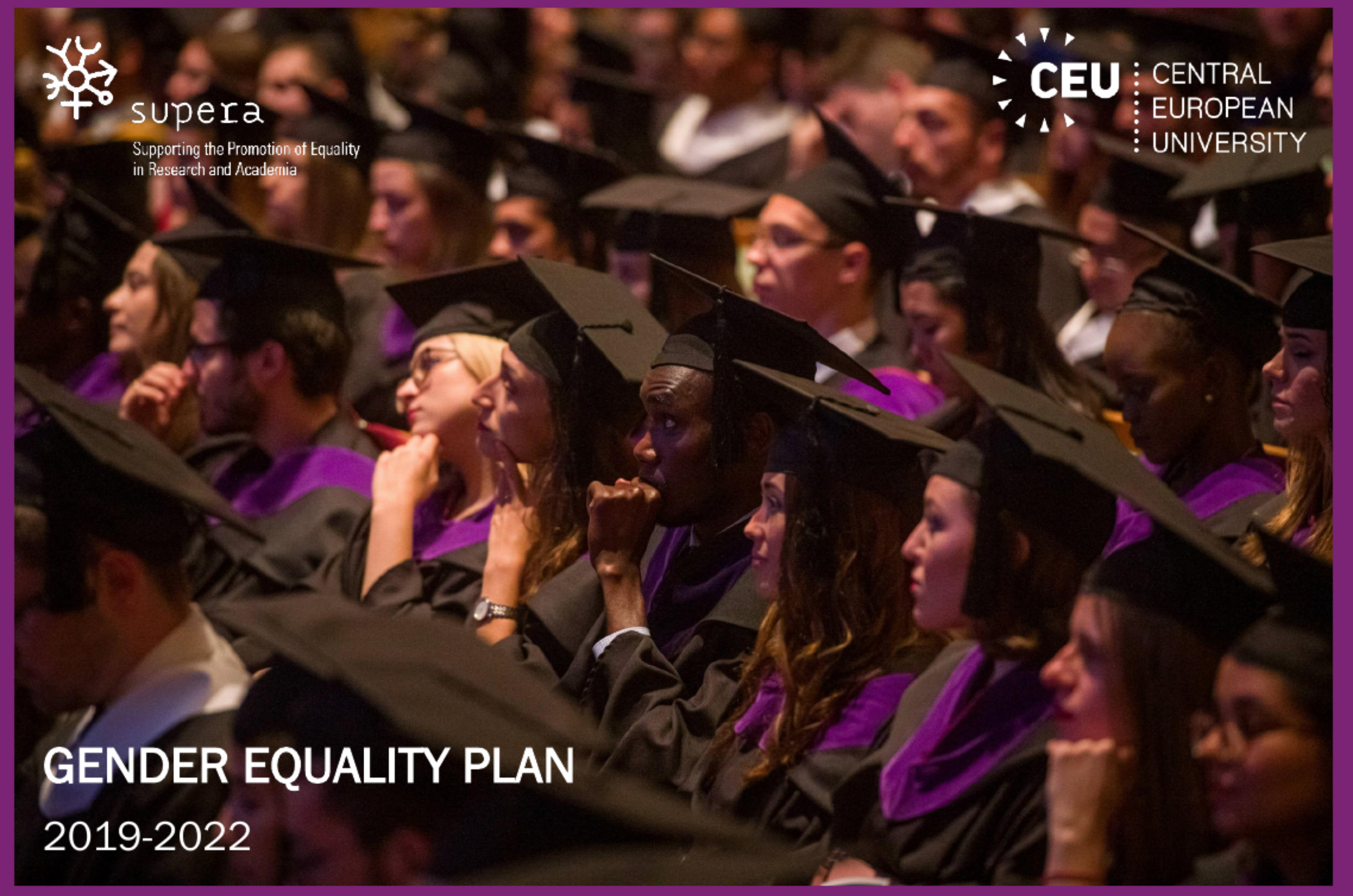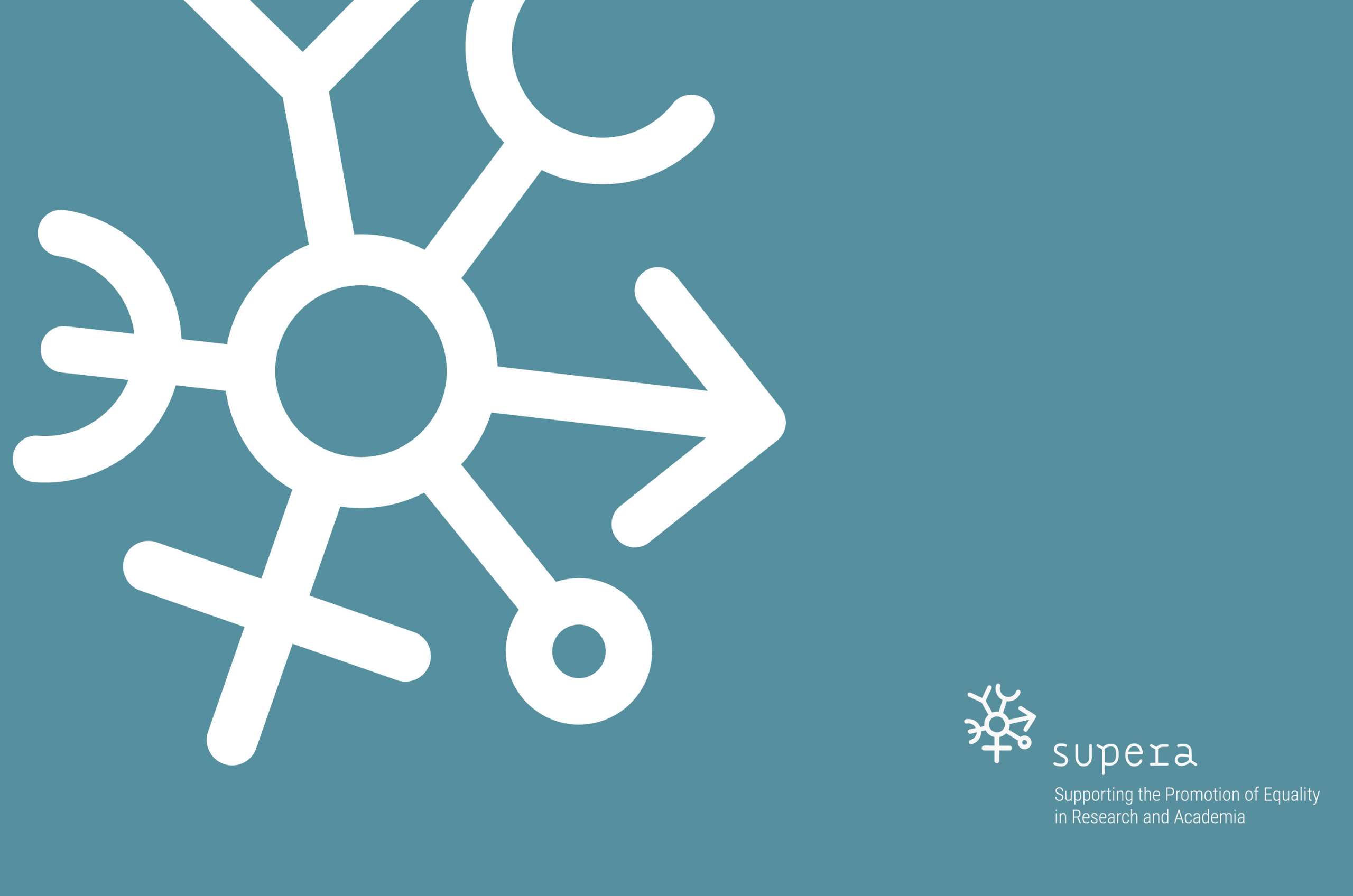In support of gender rights and academic freedoms: our solidarity statement
By the SUPERA Consortium
We, members of the EU-funded SUPERA initiative, express our deepest concern for the reiterated and coordinated attacks on gender rights and academic freedoms in several EU member States such as Hungary, Poland or Romania, and our most resolute support to those who, from the civil society or the institutions, defend the values of gender equality and non- discrimination and the rule of Law enshrined in EU treaties.
We manifest our strongest solidarity with women-led strikes in Poland and our firmest contempt for the attempts to undermine gender equality, gender rights – including the rights of LGBTQ persons and sexual and reproductive rights, as well as free speech and the freedom of research at universities in any member state of the European Union and beyond.
Those rights and freedoms are fundamental to open, democratic and diverse societies, and should be firmly defended wherever threatened.
Read and download the solidarity statement.








